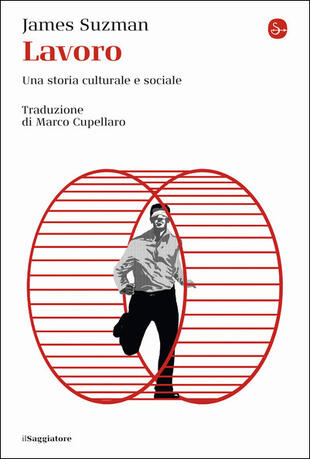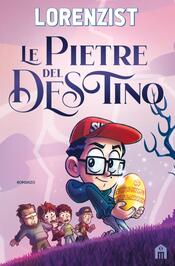

Sinossi
Il lavoro: definisce la nostra posizione nella società, determina dove e con chi passeremo gran parte della nostra giornata, è il mediatore della nostra autostima e un mezzo per trasmettere i valori in cui crediamo. Se gli economisti moderni profetizzavano la progressiva scomparsa del giogo del lavoro, oggi siamo sempre più indaffarati e sempre più occupati, a discapito del tempo dedicato a noi stessi. Ma lavorare fa davvero parte della nostra natura? Per rispondere, James Suzman ripercorre la storia dell'umanità dalle origini ai nostri giorni, spaziando tra antropologia e zoologia, fisica e biologia evolutiva, economia e archeologia. Se è vero che oggi troviamo una realizzazione e uno scopo nel lavoro, i nostri antenati concepivano in modo molto diverso se stessi e il tempo a loro disposizione. Il mito odierno dell'occupazione, considerata quasi una virtù, è un'evoluzione relativamente recente nella nostra storia millenaria, che ha avuto origine con l'avvento dell'agricoltura e con la nascita delle città, con la domesticazione degli animali e, successivamente, con la comparsa delle macchine. Lavoro racconta come nei secoli si siano trasformati radicalmente non solo la nostra capacità di produzione e il nostro impatto sull'ambiente, ma anche i concetti stessi di noia, ozio e tempo libero, seguendo i mutamenti dettati da ideologie, religioni e scoperte scientifiche. A lungo abbiamo faticato per noi stessi e per gli altri - talvolta fino a morirne -, ci siamo chiesti se ne valesse la pena, abbiamo lottato per ricavare qualche ora di libertà da dedicare alle persone e alle cose che ci piacevano. Oggi, alle soglie di un'era che promette di automatizzare gran parte delle nostre attività, James Suzman ci invita a riflettere sui valori e desideri cui vogliamo dare spazio nell'uso che facciamo del tempo della nostra vita.
- ISBN: 8842829560
- Casa Editrice: Il Saggiatore
- Pagine: 384
- Data di uscita: 22-04-2021
Recensioni
Um daqueles livros que mudam sua maneira de ver o mundo. James Suzman é antropólogo e estudou os Khoisan do sul da África, um povo que ainda segue o estilo caçador coletor. E que tem uma relação completamente diferente com a natureza e com a dinâmica de trabalho. O livro começa com uma explicação sobr Leggi tutto
We often underestimate just how much our current attitudes towards a subject are influenced by relatively recent cultural inventions, and this is particularly true regarding our relationship with work. As anthropologist James Suzman argues in his latest book, Work: A Deep History, from the Stone Age Leggi tutto
Interesting book, but the author completely leaves women (WE ARE HALF THE POPULATION, DUDE) out of his history of work. The history of work for women is so worth exploring, especially now at a time where being a mother and having paid work is a very difficult balancing act. Can we talk about how we
As the title suggests This is author James Suzman’s anthropological history of of work. Defining work as the negentropic capture and conversion of free energy into usable energy. Suzman begins with single cell organisms at the dawn of organic life, and concludes with contemporary people. Along the w Leggi tutto
Most of us do work in return for monetary reward, either as pay from somebody else or as profits in the case of an own business. Regardless of the nature of the work, the effort itself is considered as a noble pursuit in all societies. We work to live and live to work, by finding meaning, satisfacti Leggi tutto
Although a fascinating topic, the book was ultimately a bit of a disappointment to me. I wish I could have gotten more in-depth insights from his years with the Jo'Hoansi and less about the pre-history of "work" before humans existed. Yes, technically you could say that cells do work as well, but I
BANGGGGER of a book. The new Holy Trinity - Bullshit Jobs, Utopia for Realists and Work. The need to keep up with the Joneses/the malady of infinite aspiration (among other things) is a great answer to why Keynes got it so wrong when he said we'd be working 15 hour work weeks in the 21st century. We l Leggi tutto
Citazioni
Al momento non ci sono citazioni, inserisci tu la prima!























